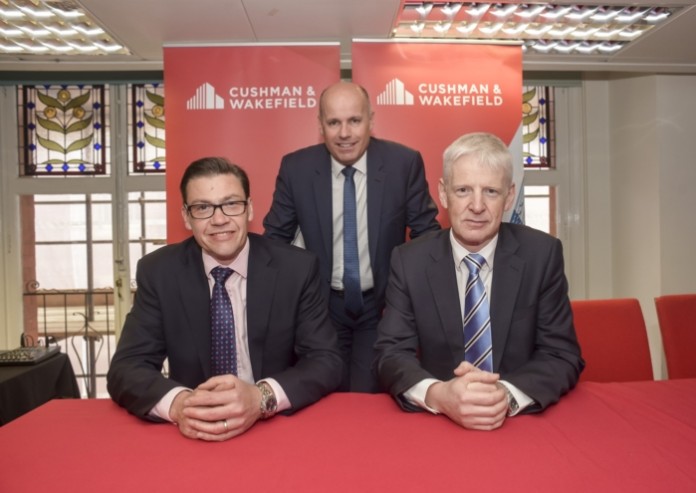
Cushman & Wakefield has presented its Birmingham Property Outlook for 2017 and beyond following a year of unprecedented economic and political change. The breakfast presentation, held at The Studio in Birmingham city centre, revealed that the commercial property market in the region has remained resilient despite fears following the result of the EU referendum.
Courtney Fingar, Editor-in-Chief at fDi Magazine began the event with a keynote presentation on the global landscape and impact of Brexit on foreign direct investment (FDI).
She revealed that ‘uncertainty is the only certainty’ in a post-Brexit world, with the UK experiencing a 42% decline in greenfield capital investment and 9% decline in job creation in 2016 as uncertainty led investors to postpone or relocate their UK FDI plans.
She anticipated that key influencers of FDI this year would be world economic growth, US policies, taxes and immigration, the forthcoming European elections, China’s FDI policy and of course, Brexit fallout.
The presentation was followed by overviews of the Industrial, Retail and Office market in Birmingham and the West Midlands.
David Binks, Head of UK National Logistics & Industrial Agency at Cushman & Wakefield revealed 2016 had been a record year for industrial take-up, up 50% on 2015. The Midlands accounted for 34% of UK take-up, with 9m sq ft of space being transacted across the region. This was largely driven by online retail and e-commerce, a trend which is likely to continue this year.
He said: “Despite the uncertainties created by the vote to leave the EU, the underlying, structural changes in the logistics and manufacturing markets continue to generate positive market conditions. The EU referendum result reduced the supply of new development, which will add to upward pressure on rents. Good news if you are an investor, but less if you are an occupier.”
Adam Lazenbury, Partner in the National Retail agency team covered the retail and leisure market, which has seen changing consumer shopping habits create demand for e-commerce channels at the expense of ‘bricks and mortar’.
Adam said: “The retailing landscape continues to evolve rapidly. External influences are providing challenges to occupiers, consumer demands are more diverse from convenience, retail parks, roadside to super prime shopping centres meaning the importance of place making and customer experience is essential.”
Completing the presentations, David Tonks, Head of Cushman & Wakefield’s Birmingham office and International Partner in the Office agency team discussed the rapid polarisation in the offices market in the city.
David Tonks said: “The impact of the major infrastructure projects recently seen in central Birmingham and beyond have served to make Birmingham one of the few credible relocation or consolidation options for larger employers that are reshaping their footprint. The scale and breadth of the talent pool in the region combined with the ever improving communications are encouraging both occupiers and investors to advance their investment plans in the area and there are a number of opportunities emerging as the city centre expands.”



















